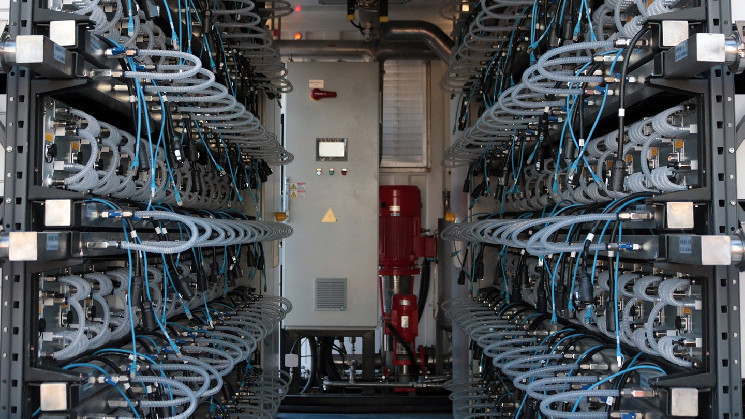The bitcoin halving is already partially priced in, the report said.
Deutsche Bank said it does not expect a large rally after the event.
The geography of crypto miners is expected to shift following the halving to countries with lower energy costs, the bank said.
The bitcoin (BTC) reward halving, expected in the next couple of days, has already been partially priced in by the market and a large rally in the cryptocurrency is unlikely after it occurs, Deutsche Bank (DB) said in a research report on Thursday.
The quadrennial reward halving slows the rate of growth in bitcoin supply and is expected to occur around April 19-20.
Bitcoin has climbed 44% year-to-date, CoinDesk Indices data show, more than double the gain of the CoinDesk 20 Index, a measure of the broader crypto market. The cryptocurrency’s outperformance was driven mainly by the launch of spot bitcoin exchange-traded funds (ETFs) in the U.S. in January.
The positive performance of bitcoin cash (BCH) following its own halving event bodes well for the main Bitcoin network, the report said. Bitcoin Cash is a hard fork that split from the main Bitcoin network in August 2017. A fork is a modification to the original blockchain’s code.
“Looking ahead, we continue to expect prices to stay high due to expectations of future spot ether (ETH) ETF approvals; future central bank rate cuts; and regulatory changes,” analysts Marion Laboure and Cassidy Ainsworth-Grace wrote.
“Adding to that, a surge in layer 2 solutions and decentralized finance (DeFi) activity, which augment the network’s practical utility, and the setup begins to look remarkably favorable for the Bitcoin ecosystem and the wider crypto space,” the authors wrote.
Deutsche Bank said it expects the geography of crypto mining to shift following the halving, as lower block rewards mean less profit, compelling miners to seek cheaper forms of energy.
“Latin America, Asia, Africa and the Middle East have caught the attention of crypto miners due to their lower energy costs,” the report added.
The bank notes that previous halving events have driven cryptocurrency adoption, and more specifically retail adoption, as measured by the number of active bitcoin addresses.
“In the first 150 days after each previous halving event, the number of retail addresses grew by 52% in 2012, 37% in 2016 and 3% in 2020.”
Read more: Bitcoin Likely to Drop After the Halving, JPMorgan Says
 coindesk.com
coindesk.com
